- Home
- Rick Mofina
Every Fear Page 6
Every Fear Read online
Page 6
“What are you suggesting?”
“We need to know everything, Lee,” Grace said.
“We will find out, Lee,” Dupree added. “If you’re truthful with us now, it’ll save time that may help us find Dylan faster.”
“The answer is no.”
“Any vindictive girlfriends from your past?”
“No.”
“Ever have an affair?”
“God, no.”
“Or keep anything secret from your wife that may be a factor in this?”
Lee shook his head.
“Any criminal history in this family?”
“Haven’t you checked already, Dupree?”
“Please, we’re asking you to cooperate.”
“We haven’t broken any laws.” Lee glared at Dupree. “I don’t get you people. Someone tried to kill my wife while stealing our baby and you treat me like I’m involved.”
“It’s been known to happen,” Dupree said. “Four months ago, you doubled your wife’s life insurance policy to two hundred thousand dollars.”
Lee looked at Dupree, then Grace. “We updated our policies when we got one for Dylan.”
“A policy for fifty thousand?”
“That’s right.”
“We understand you recently talked to the bank about a six-figure loan.”
“I made enquiries about qualifying and terms. I’d like to buy the towing business. I discussed it with Maria.”
“When?”
“This morning. What? You think I’d kill my wife and ransom my son to own a towing business?”
“Mr. Colson, we want to eliminate you as a potential suspect as soon as possible and to do that we need your fullest cooperation.”
Lee’s left jaw muscle twitched.
“My fullest cooperation?” He’d already volunteered everything. His fingerprints for a comparison set, should they find evidence. Phone, bank, credit, and online records. The FBI was going through their mail and personal papers. Two agents were doing things to their home computer he’d never seen done before, tracking all of their e-mails and Internet activity. Out back, forensic experts were searching his truck, their cars, going through the garbage; while upstairs more agents were sifting through all of their belongings, probably going through his socks and underwear.
Why aren’t they scouring Seattle for his son?
“I am cooperating, Dupree. What’re you doing? Besides sitting here and asking me if I’m a crook, a liar, or if I’ve cheated on my wife? What the hell are you doing to find my boy? Why aren’t you looking for him?” Lee pointed at the frame showing the partial view of the van frozen on the big TV. “That’s who ran down my wife and took my son. Find them!”
Dupree let a beat pass.
“Mr. Colson, my sworn duty is to effect the safe return of your son and see to the arrest and prosecution of the people who took him and hurt your wife.” Dupree scanned the room. “The alert’s been broadcast to millions of people in the Pacific Northwest and in Canada. It will be replayed continuously all day long. We’ve entered the case data in the National Crime Information Center, to alert police across the country and compare it to similar crimes. Our Evidence Response Team is working with Seattle PD, and a Rapid Response Team has been deployed to help coordinate leads. Now, I could continue detailing every other single thing that we’re doing but that would cost us time. What I will tell you is that we will open every door and follow every lead, without fear and without favor, in order to return Dylan to his home. Every door. Every lead.”
Lee didn’t respond. His anger at Dupree had ebbed. He had nothing to hide and resigned himself to do whatever Dupree wanted just as the phone rang again. The source came up on one of the FBI’s computers. “Another press call, the Seattle Mirror,” an agent said.
“Take it, Foley,” Dupree said.
Foley answered, then put his hand over the mouthpiece.
“They want a statement from Lee Colson.”
“Tell them there will be a news conference in forty-five minutes,” Dupree said. “At the front of the house here in Ballard. Give them the address. Then tell our press office to put out a notice.” Dupree looked at Lee. “We expect Dylan’s abductors will be watching. We’d like you to consider making a plea to them. Use the news conference to talk directly to them, to get a public appeal out.”
“I’ll do whatever it takes.”
Lee nodded. “Another thing we’ll need is Dylan’s footprint.”
“His footprint?”
“Babies are too small for fingerprints. We use the footprint the hospital takes as a method of identification.”
“Like with a dead person?”
“We’re watching the airports, bus and train stations, car rentals. If we stop someone with a baby whom we suspect might be Dylan, the footprint will determine identity. We can copy it here and shoot it out instantly. We need it now.”
Lee nodded.
“Maria has it in Dylan’s baby book upstairs. I’ll get it.”
“I’ll go with you,” Grace said.
The Colsons’ renovated master bedroom had oak flooring, soft green walls, and a handmade quilt over the queen-size bed. This was Maria’s sanctuary and today it offered a reprieve from the intense activity in the rest of the house.
A female FBI agent was standing near Maria’s closet, flipping through photo albums and old high-school yearbooks. It sickened Lee the way the tragedy had engulfed them with white-gloved strangers pawing through every intimate corner of their lives.
“Could you give us a minute alone here,” Grace said, waiting until the agent closed the door before telling Lee, “Believe me, I know Dupree might come off as a jerk but he’s just doing his job.”
“What’s this? Good cop, bad cop?”
“He’s led a lot of kidnapping investigations for the bureau. Some have had parental involvement. Lee, he’s got to push every angle as quickly and as far as possible. It’s standard police work.”
“So is remembering who the victims are.”
She let him have that. He was entitled. “After the news conference we’ll take you to the hospital.”
He didn’t say anything; he was looking at his wife’s clothes, the Seahawks shirt she wore to bed, her hairbrush on her dresser. The lotion she used. He breathed in Maria’s scent, as if she were still here.
It took him back to Lincoln High.
That Friday night dance and Maria all alone against the wall. A slow song had started. He wasn’t much of a dancer, never even went to school dances. He was more comfortable working on cars and trucks, pretending they were more important than girls. But sometimes the loneliness ate at him, until he couldn’t take any more and suddenly found himself standing in the school gym in front of a teenage girl named Maria.
She was wearing a blue dress and a tiny pearl necklace, and seemed a little nervous herself.
His pulse had upshifted and even though he’d showered and shaved without nicking his chin, he knew there was still a bit of grease on his knuckles, enough to make him painfully self-conscious as he faced the moment of truth.
“Want to dance?”
“Sure.”
He took her into his arms and something happened.
Holding her so close, she felt so right as “Ruby Tuesday” echoed and a thousand points of light rained on them from the mirror ball. When the song ended they knew that the rest of their lives together had just begun.
Noises pulled Lee from the gym to the bedroom.
Shouting, then a hydraulic whir. Through the window he saw the TV trucks positioning their satellite dishes. The street was lined with a growing number of police vehicles, news crews, reporters, neighbors, kids on skateboards, bikes.
God.
“Is this it?” Grace pointed to a pastel-shaded book labeled “Baby’s First Year.” The kind you can get at most department stores.
Lee opened it to the first few pages, coming to the one with the inky black swirls and whorls, impressions of his s
on’s tiny feet taken by a nurse shortly after he was born.
He turned to Maria’s entry for Dylan’s birth. “Today God granted me a miracle” she’d written in her neat script. “I’m bursting with love for him, my answered prayer.”
As he traced the letters, the words began to blur. He rubbed his eyes, then saw the snapshot of the three of them taken at the hospital. Dylan, barely an hour old, his little face scrunched. Maria, radiant as she held him. And there was Lee: the proud father, so happy he wasn’t sure his feet were touching the earth.
Why was this happening? Hadn’t they been through enough?
He turned to read more of Maria’s words, her love letter to their son: “To Mommy’s Angel, No one believed we would have you, except me. I always believed you would come to me.”
11
Jason Wade paced outside the Better Price Supermart.
He was outside because the bow-tied assistant manager, “Mitch Decoli,” according to his nameplate, had busted him talking to a clerk at the customer service counter.
“No interviews with my staff inside the store.”
“Why not?”
“Company policy. I’m sorry, you’ll have to leave.”
After considering his options, Jason put his notebook away. As he walked by the checkouts, a husky-voiced cashier—”Pam,” according to her tag—pulled him aside. “Candy and I are taking our break outside in five minutes. Hang around, we’ll talk to you.”
“Sure.”
That was fifteen minutes ago.
Jason continued pacing near the shopping cart corral. While waiting he’d managed to get a call answered at the Colsons’ home. But the FBI wouldn’t put Lee Colson on the line, saying there’d be a news conference in forty-five minutes, hinting that Lee would be there. Jason checked his watch. How much more time could he afford to wait here?
Ten more minutes, then he’d bail.
Tapping his notebook against his leg, he ran through his thoughts. After his encounter with Grace Garner, he got nothing more from bewildered eyewitness Lani Tychina, other than her address and phone number. Then he’d returned to the pack at the scene where little was happening, until he noticed something the others had missed.
Movement behind Kim’s Corner Store.
A teenage girl leaving with Annette Tabor, the Colsons’ neighbor. It had to be Shannon, Annette’s daughter. He followed his hunch to the Tabor house and rang the bell. To his surprise, Annette and Shannon came to the door, their faces taut with worry.
“My daughter’s not granting any interviews.”
“No, Mom. I need to tell him.” Shannon kept him on the doorstep. He wrote quickly as she gave him a terse account of what had happened, ending it by stating: “You’ve got to write that this was not my fault. It was not my fault!” Shannon’s hand flew to her mouth as her mother pulled her away and tried to close the door.
“Wait.” He flipped through his pages. “Mrs. Tabor, you told me earlier that the Colsons had already ‘been through so much! And now this!’ Please, what does that mean?”
“This is just too upsetting,” she said and began shutting the door.
“But Mrs. Tabor, I’m just looking for people who might know—”
“Try the cashiers at the Supermart where Maria worked,” Shannon shouted to him before her mother closed the door.
As he drove to the local Better Price Supermart, he looked anxiously into his rearview mirror at the satellite news trucks gathering in front of the Colsons’ home.
It was eight minutes away.
He stood a good chance of learning more about Maria with the cashiers. From stories he’d done on supermarket robberies, he knew how hard they worked. Standing on their feet all day. Some got varicose veins or backaches. They contended with scanners that malfunctioned, dealt with bitchy customers and management that plotted to claw back hard-won wages and benefits. It helped color the unfolding picture of Maria Colson’s life.
“Who’re you with?”
He turned to face Pam the cashier as she blew a stream of cigarette smoke skyward.
“Seattle Mirror.” Jason produced business cards for Pam and Candice, the younger cashier with her who was snapping her gum and looking around as if she were guilty of something.
“Mitch’s going to freak out,” she said.
“Screw him. It’s our time.” Pam studied his card. “We saw some of what happened on the TV in the lunchroom. The produce manager told us about the alert. It’s horrible. Is Maria still alive?”
“As far as I know,” Jason said.
“Did they find Dylan yet?” Pam asked.
“Not yet.”
“Where’s Lee?” Candice asked.
“Either at the hospital, or at home with the police, in case there’s a ransom call or something. That’s what I’ve heard.”
“Is it true? Did it happen like we’re hearing? Someone just snatched Dylan from her then ran her down?” Pam asked.
“The details are still sketchy,” he said.
Candice touched the corners of her eyes. “It’s just so awful. How could anyone do this? Do the police have any idea who did it?”
“I’m not sure. There’s going to be a news conference.” Jason opened his notebook. “Maria worked here, as a cashier?”
Both women nodded.
“She was on mat leave,” Pam said. “Used some parental leave and banked vacation time to stretch it out. She has the seniority because she’s been working at BPS—cripes, since she graduated from high school.”
“She worked, like, right up until her time,” Candice added. “I used to tease her about reaching the till.”
“Quickly”—Jason checked his watch as he wrote—”what can you tell me about Maria and Lee?”
“High-school sweethearts. They both went to Lincoln,” Pam said. “He’s a good-looking, hardworking man devoted to her. She’s so cute. They’re in love. The real deal. He’d do anything for her.”
“For the longest time, Maria wanted to marry Lee, have babies, have the white-picket dream,” Candice said. “Having babies was all she ever talked about.”
Pam nodded, dragging on her cigarette. “Yeah, Maria was desperate to have kids. Really. Seems that’s all she lived for. She was baby crazy.”
“Baby crazy?”
Candice rummaged through her bag and produced a snapshot. Candice, Pam, and several other smiling women were bunched around Maria Colson, whose face glowed in the light shining from the candles of the cake in front of her.
“We threw a shower for her. Look how happy she is.”
“Can I borrow this to use this in the Mirror?”
Candice looked at Pam.
“It’s your photo, your property, right?” Jason said. “The more attention on the story, the better the chances of it helping.”
Candice nodded. “Take it.”
“I’ll talk to Chip in the deli,” Pam said, “about taking up a collection with the chain and he can call Lee’s guys at the towing shop to join in, for a reward. There’s talk about a community search team to help pass out fliers and look for stuff. And we’ll go see Maria as soon as we get off.”
Before they returned to work, Jason got their full names, contact numbers, and their promise to call him with any new information.
“Hold it,” he said, glancing at his watch before they left. “One thing, a neighbor I talked to said something odd. Hold on.”
Jason looked through his notes.
“Like that what happened today sort of followed another bad thing that happened to the Colsons. Here’s what she said: ‘Why Lee and Maria? They’ve been through so much. And now this.’” Jason looked up from his notebook. “Do you know what that might mean?”
Pam and Candice looked at each, then shrugged.
“Not really,” Pam said.
“Well, was there some kind of other tragedy in their lives, maybe?”
Candice shook her head, then nodded to Mitch Decoli, who was watching them from the other
side of the supermarket’s front window and tapping his watch. Pam sneered and took a final pull from her cigarette before crushing the butt under her foot.
“I know she had a hell of a time getting pregnant and that used to get her down. I think one time a doctor told her that she couldn’t have kids, or would have a hard time, or something like that.”
“Really?” Jason jotted some notes. “But she had Dylan?”
The women nodded.
“I mean”—Jason flipped over the baby shower picture—“it’s pretty obvious she’s pregnant here.”
“Pam, we have to go,” Candice said.
12
Four hours after Maria Colson left her home pushing Dylan’s stroller to Kim’s Corner Store, FBI agents were setting up a video monitor beside a table and folding chairs in her driveway.
Preparations for the news conference.
For Lee Colson to plead for his son’s life.
“Have your IDs ready,” Special Agent Ron Foley said as he approached the yellow tape keeping reporters and neighbors on the street. “Only accredited press will be let onto the property to set up for the news briefing. For you people going live, that’s nineteen minutes from now. Let’s go.”
Some sixty news types jostled to claim a piece of the Colsons’ pavement. Metal clanked as TV crews erected tripods and called for cables, switches, and batteries to be ferried from satellite trucks. Harried cell phone calls were made to editors, patched through to booths and networks. Data about birds, dishes, coordinates, feeds, airtime, and sound tests were exchanged. Overgroomed TV reporters checked their hair, teeth, earpieces, and mikes and helped with white balances by holding notebooks before cameras.
“We’re going live through New York!” a red-haired TV reporter, hand cupped to one ear, repeated into her camera.
A mountain of portable recorders and microphones with station flags rose at the center of the table as reporters settled into spots while taking calls from their desks.
Jason nodded to Nate Hodge to check out the agent testing the video monitor. The agent was cueing up a tape that appeared to be footage from a surveillance camera. Hodge raised his Nikon, squinted through the viewfinder to line up a shot.

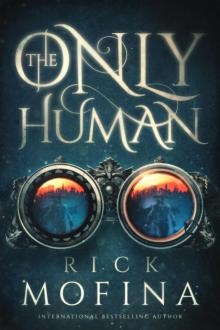 The Only Human
The Only Human Tom Reed Thriller Series
Tom Reed Thriller Series![[Tom Reed and Walt Sydowski 04.0] No Way Back Read online](http://i1.bookreadfree.com/05/tom_reed_and_walt_sydowski_04_0_no_way_back_preview.jpg) [Tom Reed and Walt Sydowski 04.0] No Way Back
[Tom Reed and Walt Sydowski 04.0] No Way Back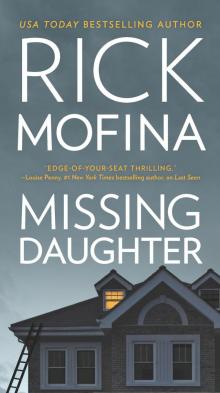 Missing Daughter
Missing Daughter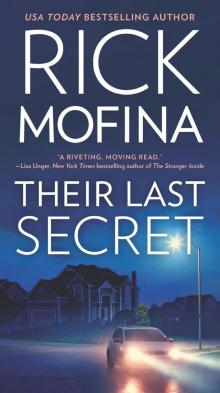 Their Last Secret
Their Last Secret Jason Wade - 02 - Every Fear
Jason Wade - 02 - Every Fear In Desperation
In Desperation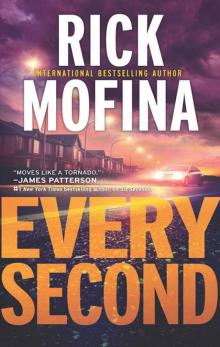 Every Second
Every Second Full Tilt
Full Tilt Search for Her
Search for Her The Last Pursuit
The Last Pursuit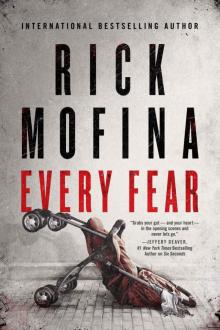 Every Fear
Every Fear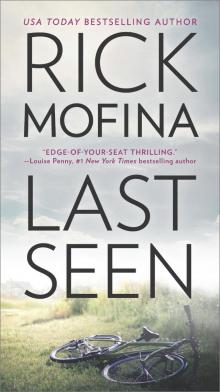 Last Seen
Last Seen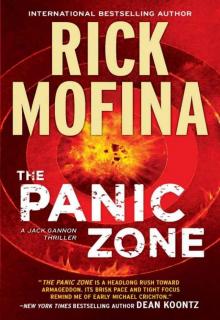 The Panic Zone
The Panic Zone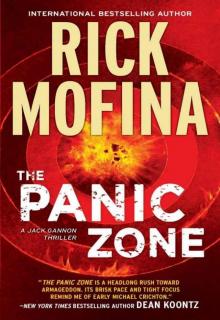 The Panic Zone jg-2
The Panic Zone jg-2 Free Fall
Free Fall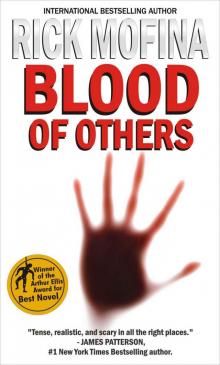 Blood of Others
Blood of Others![[Jason Wade 02.0] Every Fear Read online](http://i1.bookreadfree.com/i1/03/31/jason_wade_02_0_every_fear_preview.jpg) [Jason Wade 02.0] Every Fear
[Jason Wade 02.0] Every Fear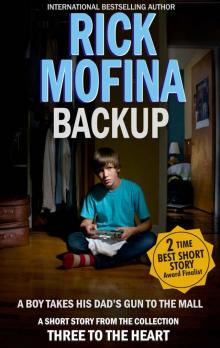 Backup
Backup Perfect Grave
Perfect Grave Into the Dark
Into the Dark Whirlwind
Whirlwind Perfect Grave jw-3
Perfect Grave jw-3 If Angels Fall (tom reed and walt sydowski)
If Angels Fall (tom reed and walt sydowski) Six Seconds
Six Seconds If Angels Fall
If Angels Fall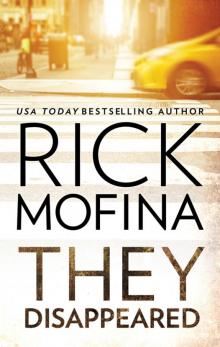 They Disappeared
They Disappeared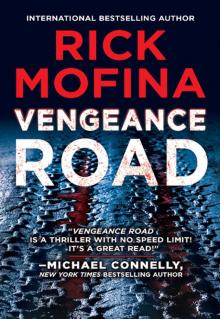 Vengeance Road
Vengeance Road Before Sunrise
Before Sunrise A Lifetime Burning in a Moment
A Lifetime Burning in a Moment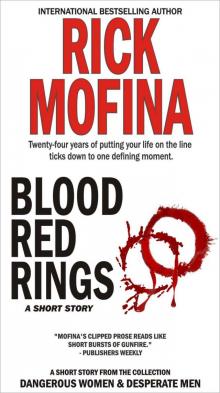 Blood Red Rings (Dangerous Women & Desperate Men)
Blood Red Rings (Dangerous Women & Desperate Men) As Long As We Both Shall Live (Dangerous Women & Desperate Men)
As Long As We Both Shall Live (Dangerous Women & Desperate Men)![[Tom Reed and Walt Sydowski 01.0] If Angels Fall Read online](http://i1.bookreadfree.com/i2/04/12/tom_reed_and_walt_sydowski_01_0_if_angels_fall_preview.jpg) [Tom Reed and Walt Sydowski 01.0] If Angels Fall
[Tom Reed and Walt Sydowski 01.0] If Angels Fall Cold Fear
Cold Fear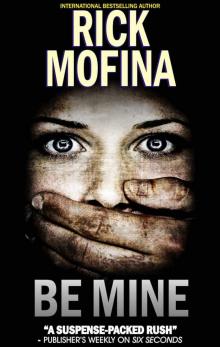 Be Mine
Be Mine Three Bullets To Queensland
Three Bullets To Queensland